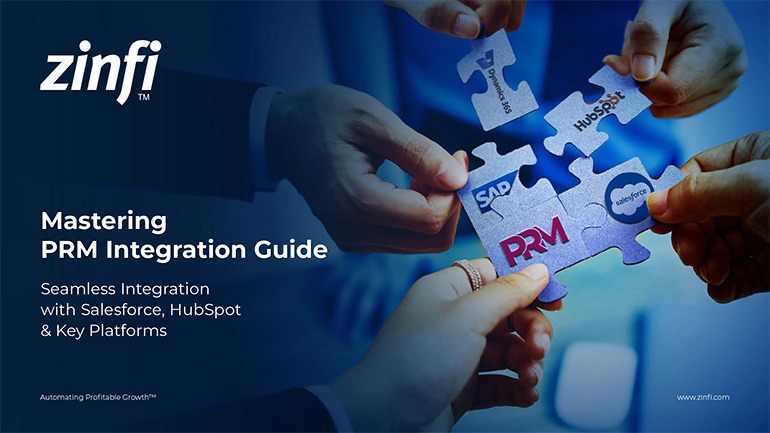Glossary - How to - Channel Management
How to Implement Effective Channel Management?
Introduction
What is Channel Management?
Channel management refers to the strategies and processes to manage relationships with distribution channels, partners, resellers, and other intermediaries. Effective channel management ensures that products and services reach end customers efficiently while maximizing revenue and optimizing partner engagement. It plays a crucial role in industries that rely on indirect sales models, such as technology, consumer electronics, and pharmaceuticals.
In today’s competitive landscape, businesses must develop comprehensive channel management strategies to drive partner success and customer satisfaction. Companies leverage various tools and methodologies to streamline partner relationships, enhance communication, and improve performance. As organizations scale, automation and Partner Relationship Management (PRM) solutions become essential to manage and optimize these relationships efficiently.
Importance of Channel Management in PRM
Partner Relationship Management (PRM) involves managing partnerships across various stages, including onboarding, enablement, performance tracking, and incentives. Channel management aligns with PRM by providing businesses with a structured framework to collaborate effectively with partners. By integrating PRM software and best practices, organizations can:
- Improve partner engagement through streamlined communication.
- Enhance visibility into sales performance and channel effectiveness.
- Optimize training and certification programs for partners.
- Automate workflows, reducing manual efforts in partner operations.
- Increase revenue by aligning partner incentives with business goals.
Key Takeaways:
Develop a Clear Channel Strategy
A well-defined channel strategy lays the foundation for successful partner relationships. Organizations should:
- Identify target market segments and partner types (e.g., distributors, resellers, system integrators).
- Define clear roles, responsibilities, and expectations for each partner.
- Establish KPIs to measure success and align channel efforts with business objectives.
A structured channel strategy ensures businesses effectively manage partnerships while optimizing market coverage and customer reach.
Utilize PRM Software for Automation
PRM solutions provide businesses with automated tools to manage channel operations efficiently. These platforms offer:
- Centralized partner portals for streamlined communication and resource sharing.
- Automated onboarding and training programs to improve partner readiness.
- Performance tracking dashboards for real-time insights into partner contributions.
By leveraging PRM software, businesses can reduce operational inefficiencies, improve collaboration, and scale their channel programs effectively.
Implement Incentive and Loyalty Programs
Motivating channel partners is crucial to driving performance and engagement. Companies should develop:
- Tiered incentive structures based on partner performance.
- Reward programs that recognize top-performing partners.
- Exclusive benefits like access to premium resources, training, and marketing support.
Well-structured incentive programs encourage partners to stay engaged and invest in growing the brand’s market presence.
Strengthen Partner Enablement and Training
Empowering channel partners with the necessary knowledge and resources is essential for success. Organizations should provide
- Comprehensive training programs on products, sales techniques, and compliance.
- Regular webinars, workshops, and certification courses.
- Marketing and sales enablement tools for effective lead generation and customer engagement.
A well-trained partner network ensures better customer experiences and increased sales conversions.
Monitor Performance and Optimize Continuously
Continuous monitoring and optimization of channel performance are crucial for long-term success. Businesses should:
- Analyze sales data and partner contributions to identify growth opportunities.
- Conduct regular partner reviews and feedback sessions.
- Adapt strategies based on market trends, partner needs, and customer behavior.
Organizations can refine their approach and drive sustained growth by consistently evaluating channel effectiveness.
Summary of Key Takeaways:
- A well-defined channel strategy is essential for successful partner engagement.
- PRM software streamlines operations, improve collaboration, and scales partner programs.
- Incentive programs drive partner motivation and increase engagement.
- Comprehensive training and enablement ensure partner success and customer satisfaction.
- Continuous monitoring and optimization enhance channel performance and business growth.
Industry-Specific Examples of Channel Management:
- Automotive Manufacturing:
- Car manufacturers collaborate with dealerships and service centers to manage inventory and customer service.
- Effective channel management ensures streamlined logistics and dealer support.
- Consumer Electronics:
- Brands like Apple and Samsung manage retail partners and authorized resellers for product distribution.
- Training and certification programs help ensure quality customer experiences.
- Energy Production:
- Energy providers coordinate with distributors and installation partners to reach end consumers.
- Channel management ensures regulatory compliance and efficient service delivery.
- Financial Services:
- Banks and insurance companies use channel partners to expand service offerings.
- Automated tools track partner sales and customer interactions for compliance.
- Food and Beverage:
- Manufacturers work with distributors, wholesalers, and retailers to manage product availability.
- Effective channel management reduces supply chain inefficiencies and ensures product freshness.
- Healthcare Services:
- Pharmaceutical companies manage distributors and healthcare providers to ensure timely delivery of medicines.
- Channel strategies focus on regulatory adherence and sales training.
- Information Technology:
- IT companies use VARs (Value-Added Resellers) and MSPs (Managed Service Providers) for software distribution.
- PRM software enhances partner training and deal registration processes.
- Pharmaceutical Development:
- Drug manufacturers collaborate with pharmacies and hospitals for medication distribution.
- Compliance management is crucial in partner training and reporting.
- Retail Industry:
- Brands like Nike and Adidas manage partnerships with global retailers.
- Effective merchandising and marketing support enhance in-store and online sales.
- Telecommunications:
- Telecom providers work with resellers and service partners to expand coverage.
- Channel automation improves billing, customer support, and partner performance tracking.
Conclusion:
Effective channel management is crucial for businesses relying on partner-driven sales models. Organizations can maximize revenue and market reach by implementing structured strategies, leveraging PRM solutions, and optimizing partner relationships. Industry-specific best practices highlight the importance of tailored approaches to channel success.
Adopting channel management best practices and PRM software can significantly improve efficiency, engagement, and profitability for organizations looking to enhance their partner ecosystem.
Associated Keywords:















